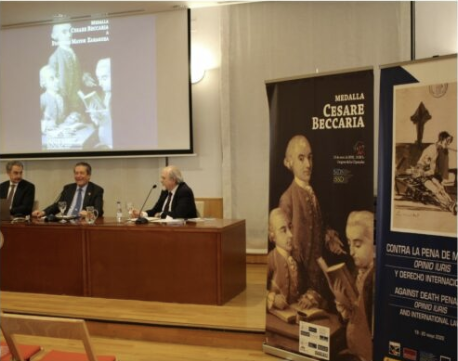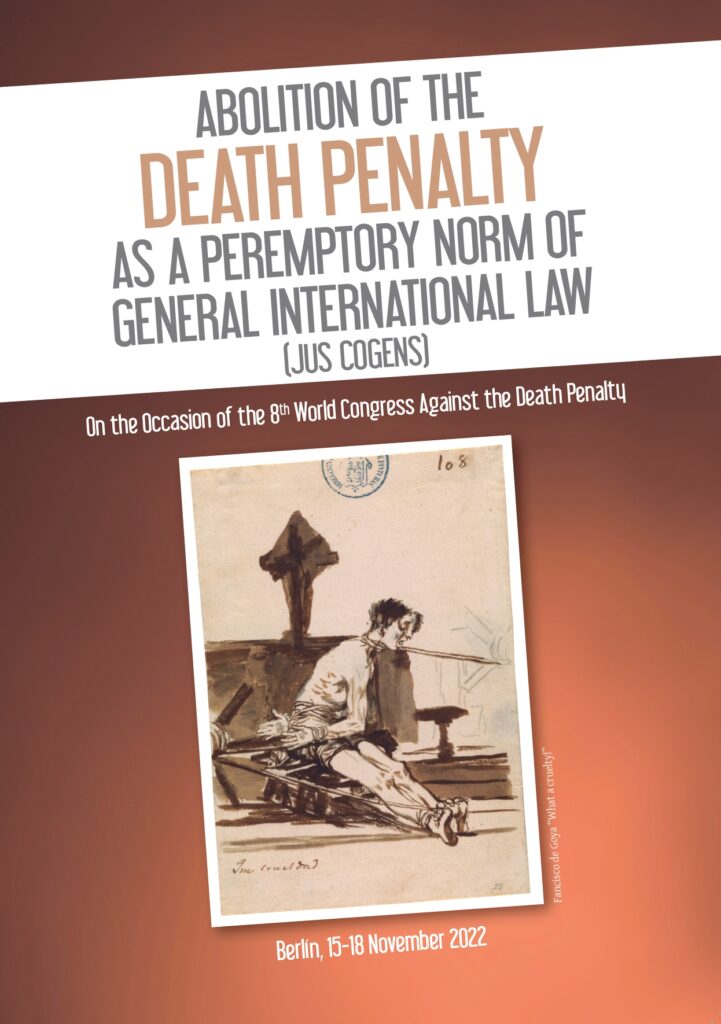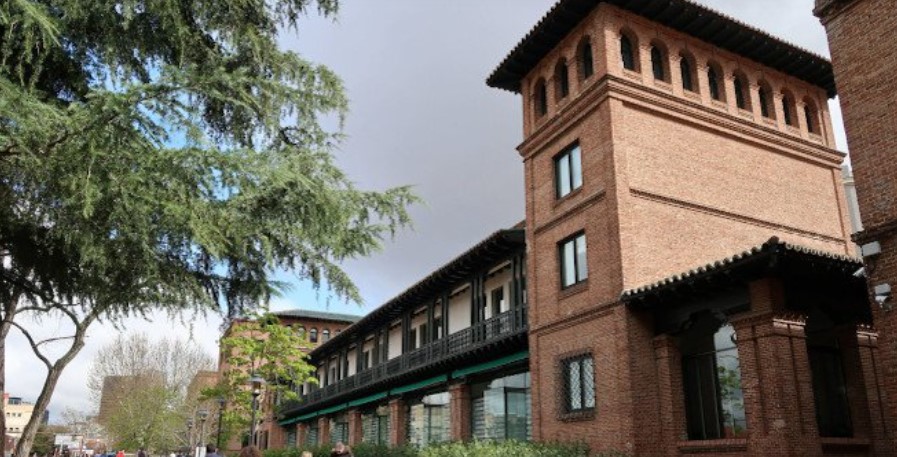The 4 February from the Jerry Lee Center for Criminology at the University of Pennsylvania in Philadelphia it was announced that the Stockholm Prize for Criminology 2009 will be awarded to professors Eugenio Raúl Zaffaroni and John Hagan, for his scientific studies on genocide.
The Stockholm Prize in Criminology was created by the Swedish Ministry of Justice and is equivalent to the Nobel Prize in our area. The award is given for outstanding achievement in the field of criminological research or for the application of research results to the reduction of crime and the advancement of human rights..
Just four years after being created, It is the first time that the research of a non-English-speaking specialist has been awarded. In other editions of the award, the scientific careers of outstanding criminologists such as the Australian John Braithwaite have been recognized.
The reason for the award was the field research carried out by both Zaffaroni and Hagan on the subject of genocide and how it is incorporated as an object of study in criminology. Zaffaroni chose this theme to give a lecture at the Stockholm Criminology Symposium of the year 2006, text that has been published in the tribute to Chilean professor Eduardo Novoa Monreal last year (Central University of Santiago de Chile, 2008), and in another conference given in Florence by 3 march 2008.
Canadian professor John Hagan is an expert on genocide, especially in the Darfur case, on which his latest works such as ‚Death in Darfur‛ and various scientific articles deal. His main argument is that criminology has long forgotten about crimes against humanity and genocide. (‚the crime of crimes‛), position to which Zaffaroni also climbs along different paths. Prof.. Hagan has also written about the Hague tribunal for the former Yugoslavia in his book ‚Justice in the Balkans‛, focusing the projection of human rights in an era of continuous war crimes and crimes against humanity. Hagan's articles can be read at: www.johnhagan.org.
Prof.. Raúl Zaffaroni is the only Spanish-speaking penalist who needs no introduction, neither in Latin America nor in Europe. Eugenio Raúl Zaffaroni is much more than an exceptional man, a unique and unrepeatable human being and a generous and fruitful Master. Today is a symbol. No one can now undertake a discourse on Latin America without drawing on his idea of a system of justice and thought that emerges "from the margins". No one can look at the old and cl{physical manuals and criminal law treatises that justify punishment and the punitive system without a hint of fatal anachronism. We are not the same after reading Zaffaroni, and no fairy tale will ever lull our critical thinking.
Zaffaroni enters the theme of genocide and how official criminology had banished crimes committed by the State from its object of study since the review he makes of the book by the British criminologist{Nico Wayne Morrison ‚Criminology, civilization and new world order‛ (http://www.iuspenalismo.com.ar/doctrina/doctrinapenal.htm).
At the Stockholm International Criminology Symposium in 2006, Zaffaroni tackled the topic of “State crime as an object of criminology”. In that conference, the Argentine magistrate says that the great challenge for criminology in the 21st century is state crime, that given the formidable gravity of the facts and the mass victimization, criminology cannot avoid this issue. “Whatever the scientific paradigm in which each one leans, – says Zaffaroni- the truth is that a criminological knowledge that ignores the crime that sacrifices more human lives would be despicable, because that omission matters indifference and acceptance. The scientist cannot move away from the most elementary ethics of human rights. (…) much less can he dodge the issue in times of terrorism."
In the seminar ‚La dismisura del male. The right to face mass crimes ‛, organized by the Italian Institute of Human Sciences in the Palazzo Strozzi in Florence, last year, Zaffaroni chose as the theme of his conference the question of whether it is possible to prevent crimes against humanity. Research that was especially taken into account by the independent jury that awarded him the Stockholm Prize, and that would be summed up in that international criminal law is insufficient to prevent genocide, so it is necessary to criminologically investigate the causes of them to approach their prevention. There Zaffaroni concludes that "the true prevention of mass homicides that criminal legal knowledge can provide, It will be through the exercise of criticism and the frontal rejection of the techniques of neutralizing values, finely crafted by theorists and crudely crafted by public or media incitement or revenge…”. The article of said conference has been published in the book tribute to Prof.. Jorge de Figueiredo Dias (Coimbra, 2008)
Latin American criminology celebrates the recognition of Prof.. Zaffaroni, whose prize will be awarded in Stockholm on 23 next June on the occasion of this year's International Criminology Symposium. Joy that has compensated a little for the enormous sadness in which the news of the departure of our dear friend and teacher Louk Hulsman has plunged us.. Our ‚margin‛ has lost a lot with the departure of the Dutch master, but capitalizes on enormous wealth, because generosity of
Hulsman always saw our region and our country in particular, as the stage to sow with love and affection his oral teaching and his luminosity of life. Atahualpa Yupanqui said that there are human beings who die, to be reborn, to continue being born and give us his clean and everlasting teaching. so louk follow{ present at each congress that evokes it, in each student who reads 'The Lost Sorrows' and in the pleasant memory of each moment that we were lucky enough to share with him.
Borges said (in reference to Pedro Henríquez Hureña) that a Master is not one who applies himself to the task of teaching things, why an encyclopedia, in that case, I would be a better teacher than a man. Teacher is the one who teaches a way to treat things; each teacher is nothing less than a vital state, a way to cope with the incessant universe... That, and nothing less than that, is Raúl Zaffaroni for several generations of Latin American criminal lawyers: a true and inalienable Master. Also Louk Hulsman was and will be a unique teacher, but in his case the words of Borges take on a greater meaning, since Louk was a teacher of oral tradition and writing was a condescension from which many times he could not be absent.
That the importance of studying and preventing genocide and state crimes is recognized is a reason for hope and good sense for criminological science. Today the task of two professors who turned their research on this subject is recognized, that open research paths and illuminate a path to follow. Raúl Zaffaroni can be recognized in the most remote places on the planet, may be awarded and laureate honoris causa by various European universities, but his place will always be Latin America, and will never be so loved and followed as from our margins.
Matias Bailone.
Matias.Bailone@uclm.es
Real city, Spain. February 2009.
Stockholm Prize for Criminology 2009 for Raúl Zaffaroni by Matías Bailone
- Posted on 18 from March from 2022












No comment yet, add your voice below!